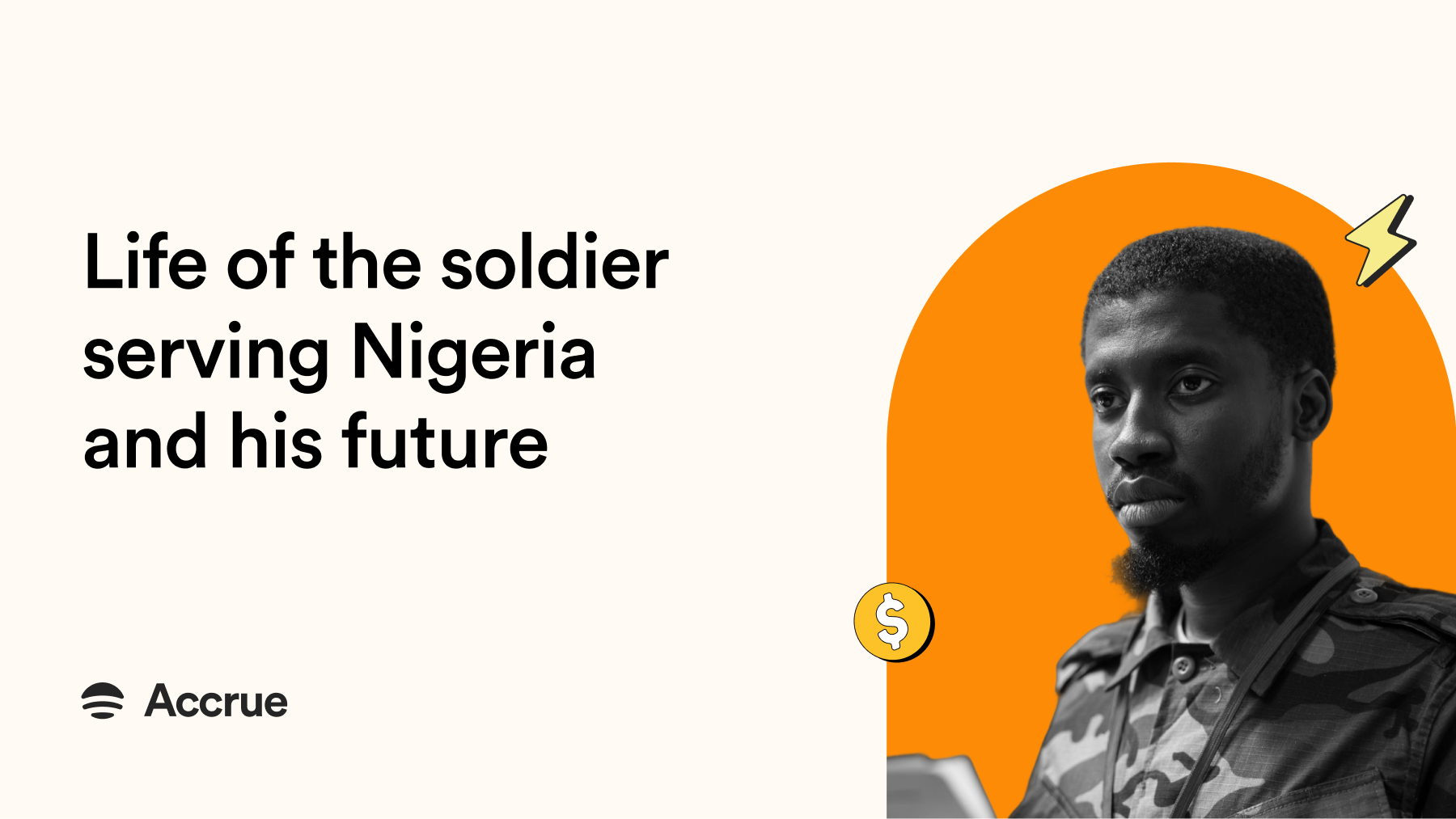From the age of eleven, this solider was already serving Nigeria. After a money mistake, he is securing his future from his salary because he had been enlisted into a system that was grooming him to defend a country at war with itself.
The Nigerian Army did not appear suddenly in his life; it was there from childhood, shaping his independence, disciplining his decisions, and tethering his future to a life of uniforms, routines, and rifles. Yet alongside duty came money, sometimes too little to matter, other times too much to handle wisely.
The journey of this week’s anonymous Money Moves subject reveals how the pursuit of service and money intertwine in the life of a soldier.
Childhood in Khaki
He still remembers the year vividly 2001 because it was the year he received his first paycheck. “₦2,500 per month,” he says with a small laugh. Add the ₦5,500 transport allowance, and the sum was almost unimaginable for an eleven-year-old and his peers. But this was the Nigerian Military School (NMS), where every boy soldier was treated as an early recruit.

NMS was a training ground where boys were stripped of childhood dependency and pushed into early adulthood. “The moment I entered NMS, I never relied on my parents for money again,” he recalls. This was the first great lesson: in the military, financial independence is not a milestone of adulthood. It is a requirement of survival.
The Call of the Academy
After secondary school, he briefly detoured into a civilian university. But the pull of the khaki was too strong. The Nigerian Defence Academy (NDA) was the goal, and when admission finally came in 2009, he stepped into an environment even tougher, even more structured, even more demanding than NMS.
The cadet allowance was ₦28,000 per month, but half of it was locked away in compulsory savings. At the time, it felt like deprivation; in hindsight, it was discipline.
By 2014, at graduation, his savings had accumulated to nearly a million naira, a staggering sum for a 25-year-old. He remembers staring at his newly decorated shoulder, overcome with pride. That day, I kept asking: So, na me be this?,” It was the best day of my life.
His first money mistake came afterwards. The easy money vanished as easily as it came. “If I had sense, I’d have bought a valuable asset. Like a land or something,”

The Soldier’s Economy: Salaries, Allowances, and Discipline
Officially, his first officer’s salary was ₦165,000 net. Add the ₦45,000 operation allowance for serving in the Northeast, and the total reached ₦210,000. Today, with annual increments of ₦8,000, his pay stands at ₦205,000, plus allowances that bring him to about ₦250,000.
Frontline life, ironically, keeps expenses low. “The more time you spend at the front, the less you spend. No outings, no luxuries. Just subscriptions, phone calls, and sending money to family.” He saves for emergency funds in a separate account, cautious now where once he was reckless. He is interested in investing, so he has some stock, crypto, and index funds. “I want to be financially sufficient to a great extent” he said.

Money, Happiness, and the Future
Asked to rate his financial happiness, he says 6.5. “I pay bills, I save, I invest and I buy what I want. The only thing missing is a house.” For him, money is not an obsession but a tool. Independence, not wealth, defines his journey.
Retirement remains a distant thought. “I live day by day. I don’t think about it too much.” What comforts him is the assurance that if disaster strikes, his family will be cared for by the Army. Life insurance, death benefits, educational sponsorships, all systems he has seen firsthand.
For now, his nights are long, his work unending. He lives in the rhythm of duty: prepare, deploy, fight, survive. Money may shape the margins of his story, but at the centre is something harder to measure, an enduring sense of service.
And so, when the phone rings, he simply says: “I have to go. Work.”
Because for him, there is always work.


I’ve lived many lives, but one lesson ties them all together: money is only as powerful as its utility. Through my work, I share stories about money and create guides for Africans who want to get the best out of theirs.
